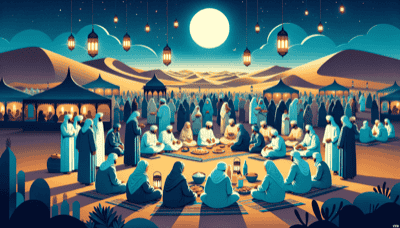We're here to help you keep count of the days to or since a date. Just click the button below and enter your chosen date to get started. Also choose the suggested days or search for a special day above #countingthedays

Eid al-Fitr, also known as the "Festival of Breaking the Fast," is a significant religious holiday celebrated by Muslims worldwide to mark the end of Ramadan, the Islamic holy month of fasting. In South Sudan, despite the country predominantly being Christian, Eid al-Fitr is recognized and celebrated by the Muslim minority with much enthusiasm.
The history of Eid in South Sudan is intertwined with the broader Islamic traditions that came with Arab traders and missionaries who introduced Islam to various parts of Africa. Since gaining independence from Sudan in 2011, South Sudan has endeavored to establish its own identity while still recognizing its diverse religious communities.
On Eid al-Fitr, Muslims in South Sudan engage in a set of common traditions:
Prayers: The day begins with communal prayers held early in the morning. These are often conducted in large open spaces or mosques where Muslims gather in large numbers to pray together.
Charity: Zakat al-Fitr, a form of charity, is given before the prayers. It is obligatory for those who can afford it and is meant to purify those who fast from any indecent act or speech and to help the poor and needy.
Feasting: After a month of fasting, food plays a central role. Families prepare special meals that may include local dishes as well as traditional Arab foods.
Dress: People wear new or their best clothes to symbolize renewal and purity.
Socializing: It's customary for people to visit friends and relatives, exchange gifts, and extend good wishes.
On Eid al-Fitr:
In summary, though a minority event in South Sudan due to its predominantly Christian population, Eid al-Fitr remains an important religious occasion for the Muslim community that highlights values such as charity, gratitude, and family unity.